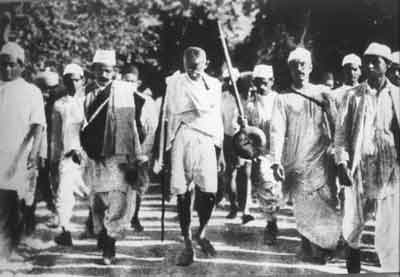Webcasts of PACS 164-A, B & C
Welcome to Peace and Conflict Studies!
Introduction to Nonviolence (164A) and Nonviolence Today (164B), were recorded and webcast in 2006/2007 at the University of California at Berkeley, within the Peace and Conflict Studies program (PACS) founded by Prof. Michael Nagler, Metta Center’s founder and president.
Prof. Nagler often refers to the “Readers.” The links you see below are the Readers (PDFs), excellent complementary material to the courses and to our education on nonviolence. Please note that the files sizes are somewhat large and could take a little while to download (as Khan Abdul Ghaffar Khan, the nonviolent soldier of Islam, said: “If I could summarize nonviolence in one word, it would be: Patience.”).
Note: We are currently working on an abridged version of the lectures and would appreciate your input on the parts you find most meaningful. We’d love to hear from you!

Introduction to Nonviolence (PACS164A)
Reader:
Section I: Background and General Principles
A Conceptual Framework for Nonviolence
A New/Old Alternative: Basic Ideas of the Vedanta
Section II: The Story Unfolds
Section III:
The Western Experience of Nonviolence
Section IV:
Mahatma Gandhi a Biography by B.R. Nanda (a very valuable book that is out of print)

Nonviolence Today (PACS164B)
Reader:
Part 1: Syllabus, Other Resources and Introduction
Part 2: Freedom Struggles; Nonviolent Insurrection
Part 3: Anti-militarism and Related Struggles
Part 4: “Globalization from Below.”
PACS 164 C and Lab
Updates: PACS & Meditation Lab
The Peace and Conflict Studies 164 A and B course, conceived and taught by Michael Nagler at UC Berkeley was one of his most popular offerings. In 2007, before retiring from the University for good, he recorded the course in its entirety. Tens of thousands have seen this course, and it is influencing and changing lives. Not to mention, bringing dedicated souls to the Metta Center in the spirit of service.
One could argue that the state of nonviolence in the world has dramatically changed since 2007. (Maybe it’s because so many people have seen PACS?)
One could also make the case that Professor Nagler has changed since that time–moving on from being a university professor to being a full-time nonviolent strategist and theorist at the Metta Center. We decided to update the course. We call it PACS 164 C.
So what is PACS 164C?
It is an in-depth study of what M.K. Gandhi called “the greatest power at the disposal of humankind.” The greatest-and arguably, the most neglected. What can we learn from the theory, history and potential of this great force? How can we practice it safely and effectively? We will be looking into these and other questions. There are no formal pre-requisites for this course except the following:
- familiarity with The Search for a Nonviolent Future and/or other resources on the Metta Center for Nonviolence’s website;
- familiarity with The Nonviolence Handbook;
- some acquaintance with the previous version of PACS 164 A and B
As Metta grows every day into an alternative learning center for the study of nonviolence, we invite you to join us by watching these videos or downloading the audio from each course. This is an experiment in decentralized yet focused learning, as well as an exploration of nonviolent power.
PACS 164C Sessions
PACS Meditation Lab
The laboratory of nonviolence is within the human heart and within the human mind. For this, Prof. Nagler, while teaching Peace and Conflict Studies 164 A and B at UC Berkeley would offer his “lab” in meditation at 8 am. While the college said that labs have to be “wet labs,” we think that kundalini qualifies. Like nonviolence, meditation has a scientific basis that overlaps with the wisdom traditions from every culture, a point of departure for much research taking place at the Metta Center.
In the following videos, Prof. Nagler shows us how to meditate.
If you are interested in learning more about nonviolence and meditation, get our e-book, Meditation for Peacemakers.







